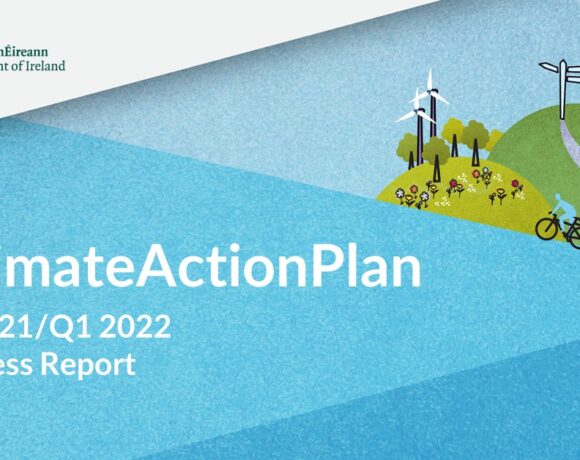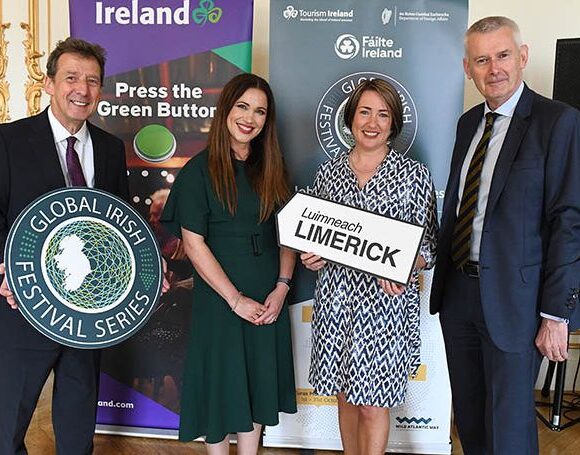Created by the Digital Skills Academy in partnership with Dublin City Council, “The Roadmap: A Digital Start-Up Journey” was developed for LEO Dublin City with plans to expand to different LEO websites across the country.
A new online application that acts as a roadmap to aid start-ups and entrepreneurs along their business development journey has been developed for the Local Enterprise Office (LEO) Dublin City.
Described as a digital “one-stop shop”, “The Roadmap: A Digital Start-Up Journey” was developed by participants in training with the Digital Skills Academy in partnership with Dublin City Council.
The platform itself is an easy to use bank of information and advice for entrepreneurs and start-ups to help at any stage of their business, whether that’s the initial idea stage, a new business or a more established one.
The application is in the planning to be launched later on in this quarter of 2018 with plans to expand to various different LEO websites for county council’s across the country.
The idea for the online platform originated within Dublin City Council. Mary Mac Sweeney, Deputy Head of Enterprise and Economic Development with Dublin City Council, explained that while there is a vast amount of information out there for an entrepreneur via the LEO website, there is nothing for the specific stages of a business journey.
“While there is a lot of information on the Local Enterprise Office website it doesn’t allow you to chart your milestones as an entrepreneur so if you are only at the idea stage there would be certain information that will be very relevant to you. If you are further down the road and you’ve set up your business but grappling with different elements moving forward there will be content relevant to that part of the journey. All of this is a digital journey for entrepreneurs,” Ms Mac Sweeney said.
“At the moment there is a lot of information on the Local Enterprise Office websites but it doesn’t really allow you to break it into the three main areas of; are you in idea stage, are you an early start-up or are you a more established start-up. I think that would be relevant to all of the Local Enterprise Offices.”
According to Ms Mac Sweeney, the Council initially met with the Digital Skills Academy last year to discuss a potential project to put forward. Both organisations reached an agreement and so the path was set to developing the digital project.
Expansion of the platform
Any Local Enterprise Office across Ireland will be welcome to host “The Roadmap: A Digital Start-Up Journey” on their website. There are a total of 31 LEO’s associated with individual county council’s throughout Ireland. While the online platform was created for LEO Dublin City, it is relevant to all local authorities.
“The reason that we were building the project is we’re dealing with entrepreneurs through the Local Enterprise Office and some of them are only at the idea stage and some of them have established their businesses or growing their businesses.
“When we make the product available it will sit on the Local Enterprise Office website and there is 31 Local Enterprise Offices in each of the local authorities nationally. We would certainly be happy to share it with the other Local Enterprise Offices and if any of them were interested to do something similar we’d be very supportive of that,” said Ms Mac Sweeney.
Six participants involved in one of the Digital Skills Academy’s International BSc Degree programmes worked remotely, communicating online and scheduling video conversations amid hectic lifestyles over a four month period to produce the final product.
Paul Dunne, CEO of the Digital Skills Academy shed some light on how participants were matched to this specific project based on their own individual skill sets and how they ranked projects proposed to them. Mr Dunne said that it is a requirement for every individual studying with the Digital Skills Academy to partake in a project as part of their course.
“We have a system where, according to our project requirements or project needs we then match particular skill sets within our programme. Participants in our programme, some of them specialise in application development, others will specialise in digital business management, digital marketing or digital design. Depending on the needs of the project we look to match areas of specialisation and the skill sets amongst the team,” said Mr Dunne.
He continued by explaining:
“We also go through a process where all of the participants are provided with summaries of projects that are available and they rank which of the projects are most interesting to them. They don’t always necessarily get their first rank but we look to match what their interests are with a project. It’s a combination of putting participants with the right skill sets on to a particular project but then there’s also that participants themselves are selecting the projects they would like to work on.
“Participants work on a project as part of their programme. It’s a requirement of the programme. They might have a range of projects to choose from or a range of industry partners that are on offer. They look at the summaries of those projects and then rank which ones they’d like to work on.”
What the project consists of
Leanne Walsh, a participant from the Digital Skills Academy involved in creating the online platform told the Council Journal in further detail exactly what the project consists of:
“It begins with a new idea and ends with an exit strategy. For each milestone you can click on the relevant area to you and enter a business resource vault which gives you more information.
“For example, if you are at the new idea stage the resources vault will give you information under headings like idea generation or developing your idea, protecting the feasibility of your idea whereas, if you’re down the line in your business strategy, growing your business strategy and your business stage is one of the milestones on the roadmap and under that you will find headings like recruitment, financing and growth strategies.
“It is a digital tool for people to find very high level information about what stage they are at in their business journey.”
Participation
Leanne says the most challenging part of being a participant in the project was scheduling times to have online meetings with the international and cross-functional team of six participants from different countries such as Spain, India and Ireland.
However, from this Leanne found that her problem solving skills vastly improved as she had limited time in each meeting to piece everything together. Benefits derived from specific challenges.
“Overall, it was really good fun and it was great working with people who chose to be on the course on top of hectic work and social lives because you definitely have to be interested and committed to do well in it. It was really a big commitment.
“Scheduling times to meet with five or six people is always going to be difficult when they’re working in full time jobs so the time difference is a problem but it was more scheduling that many people working full time that was more difficult because on the final project I worked on a lot of us were based in Ireland so it wasn’t too bad.
“One of the benefits came from one of the other challenges we had which was working in a remote team and solving problems which takes a lot longer because you have limited time in meetings, you can’t sit down face to face and hash it out in person which is usually a faster way of finding solutions so for me, a benefit came directly from that challenge. I became better at keeping meetings on track, I’ve improved my analytical and problem solving skills and overall I’ve definitely improved my communication skills.”
Paul Dunne concludes with what advice he would give to start-ups and entrepreneurs trying to make it in the industry.
“I think validation is extremely important. Certainly, our curriculum and leading lecturers who teach digital business would put an emphasis on using processes by which as quickly as possible, if you have an idea, you should be testing that idea by going talking to potential customers and then as soon as possible, ideally putting something into the market.
“It’s not always possible in all cases but in many cases, such as what’s called the Minimal Viable Product (MVP), the idea is to get real customer feedback and customer data and then to be able to iterate to improve the product or service.”













